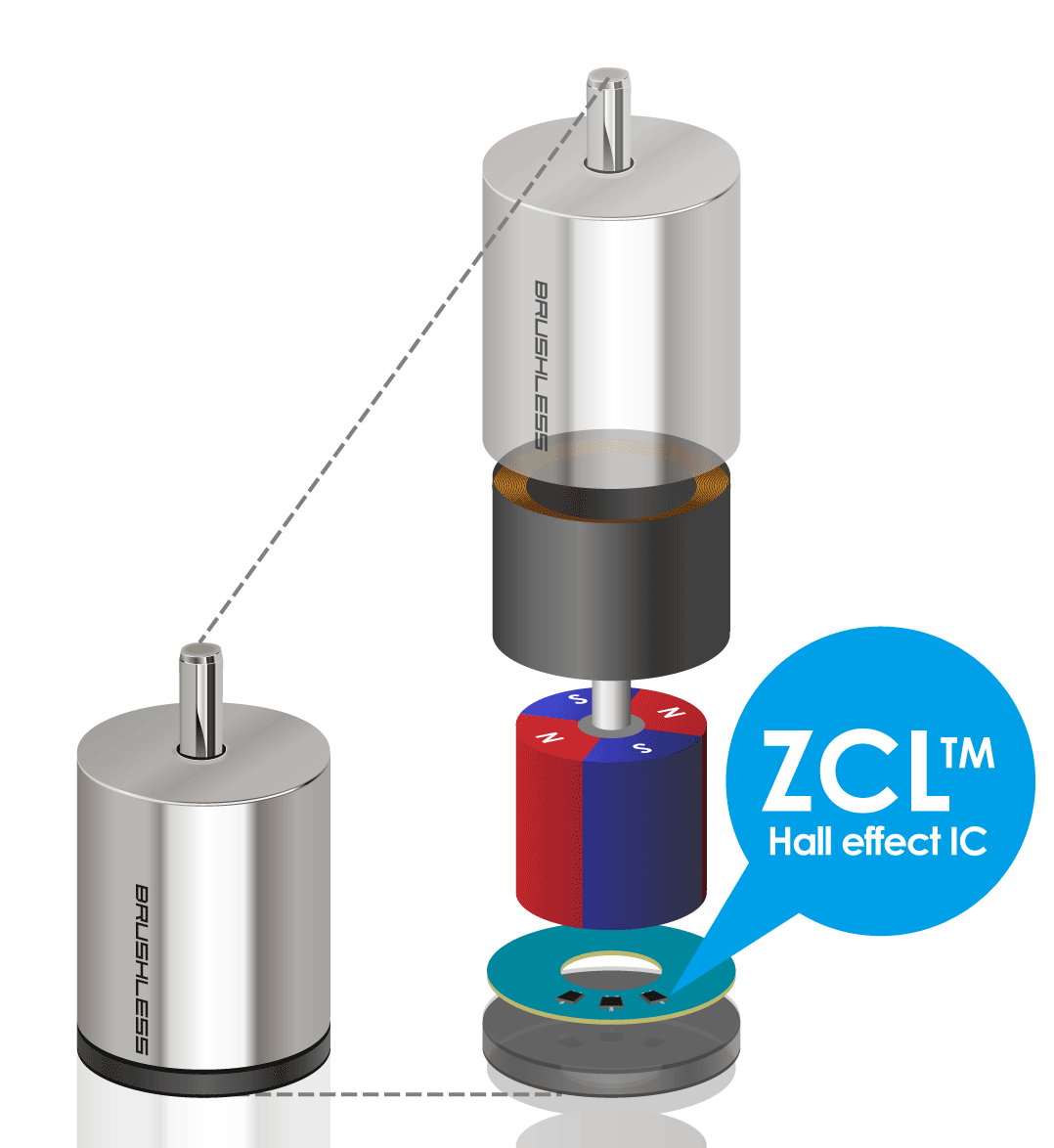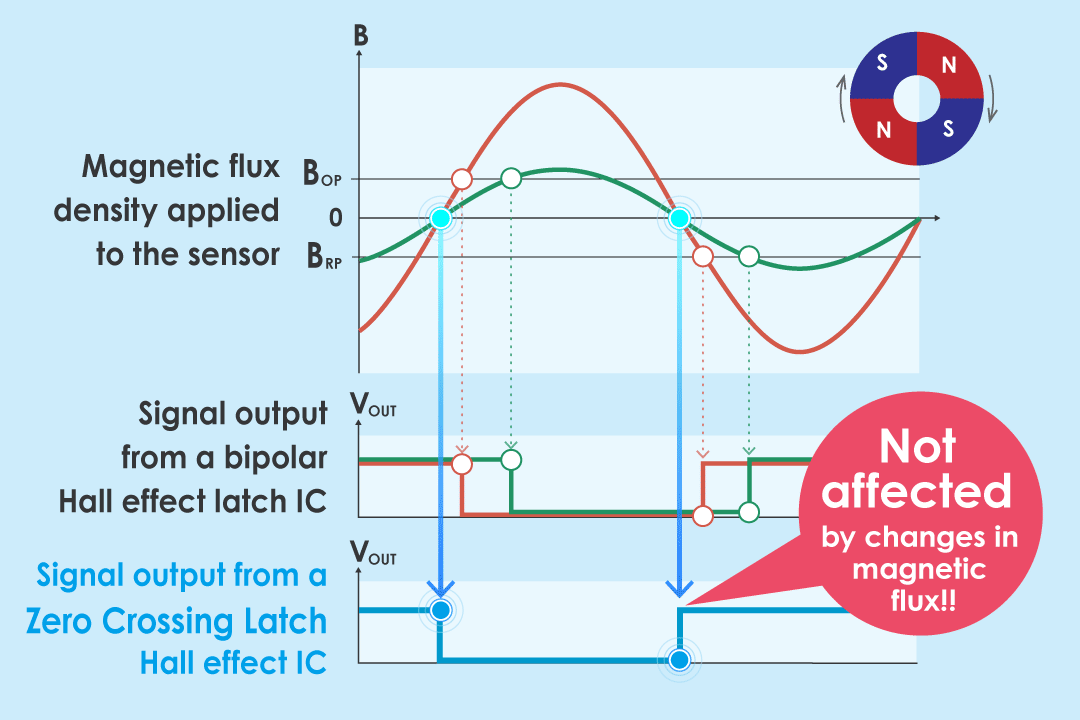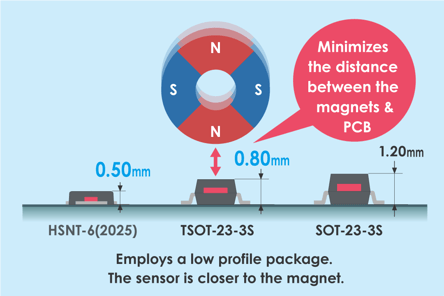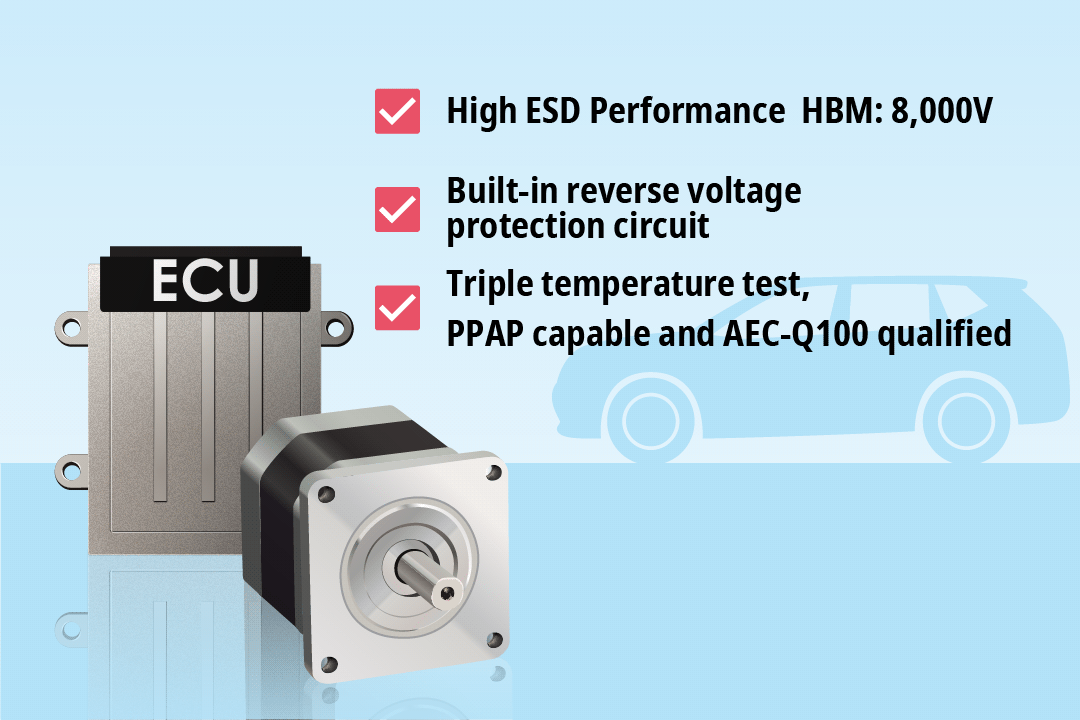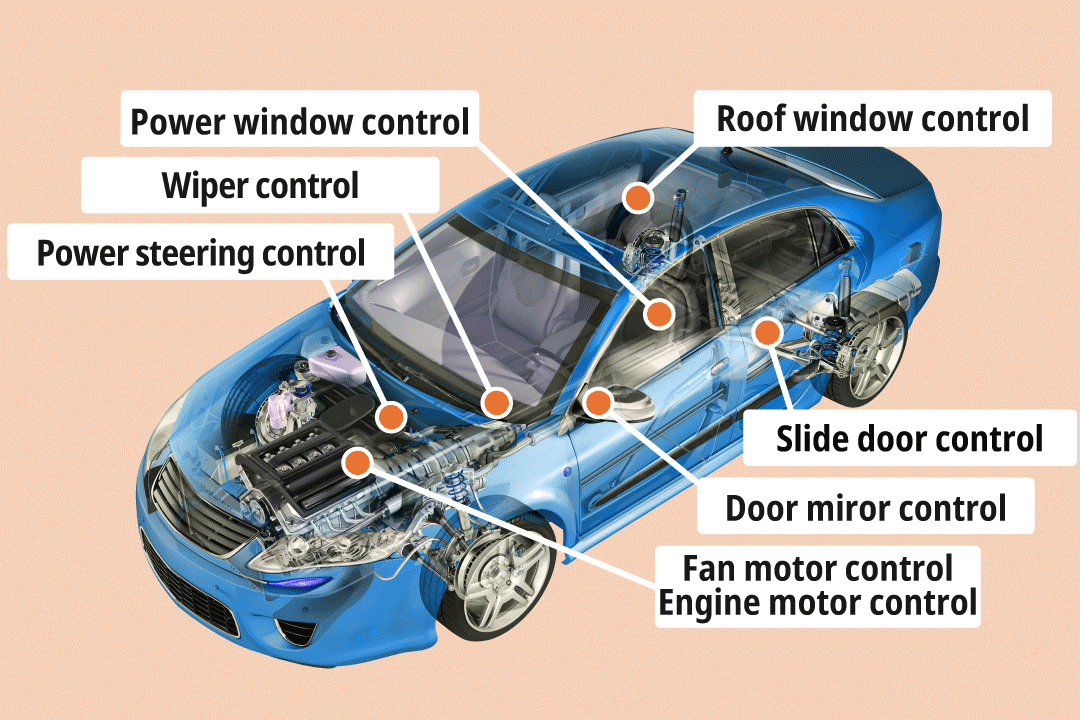
Automotive 150℃ Operation High-withstand Voltage
High-speed Zero Crossing LatchHall effect IC
S-57TZ S Series

Requirements for
Automotive BLDC
- To realize comfortable car room
Low noise & quiet operation - To reduce the load on car battery
operating at high efficiency - To be design-friendly
Low profile & Compact
The Zero Crossing Latch Hall effect IC is
a new generation of Hall effect ICs
that change the output signal at the
point polarity changes (zero crossing point) and employs
the world’s first*1 detection method optimized for
brushless DC motor control.
Explains the World's First Detection Mechanism
≫"What is a Zero Crossing Latch Hall effect IC?"
3 Advantages the Zero Crossing Latch Hall effect IC
Brings to Motor Design
Rotation angle detection is not easily impacted by changes in magnetic flux
The Hall effect IC for BLDC motor control applies the magnetic flux density from rotating magnets.
The Zero Crossing Latch Hall effect IC changes the signal output at the point polarity changes(zero crossing point), without depending on the magnitude of the magnetic flux density.
Zero cross point is constant because it is not affected by changes in the distance between the magnets and the sensor or changes in temperature.
The Zero Crossing Latch Hall effect IC simplifies complex software calibrations and tolerance calculations. These advantages further simplify the design of DC motors with constant high efficiency and low noise characteristics.
[World’s Top Class] Compact & Low Profile Motor Housing
Zero Crossing Latch technology ensures detection even of magnetic flux generated by tiny magnets.
To apply this technology to its fullest possible extent, the S-57TZ S Series is made available in a surface mount package that enables highly flexible placement.
This new package is the TSOT-23-3S (2.9 x 2.8 x t0.8mm), the world’s lowest profile package, which shrinks the distance between the magnet and the PCB to the footprint of the world standard SOT-23-3 (2.9 x 2.8 x t1.3mm) package.
Specifications ideal for Automotive motor
-High ESD Performance
To cope with the harsh environment during motor installation, it has anti-ESD performance of HBM:8,000V.
-Built-in reverse voltage protection circuit
Prevents Hall effect ICs from damage of reverse connection caused when connecting to battery or repairing a car.
-Automotive quality
Assuming use in harsh environment, S-57TZ S Series has been subjected to the triple temperature test (low, normal, high) for use in harsh environment. In addition, it is PPAP capable and AEC-Q100 qualified (operation temperature grade 0).
Application
[Automotive] Hall effect ICs for Motors
Features
| Product name | S-57TZ S Series | |
|---|---|---|
| For Automotive | ||
| Power supply voltage range | VDD=2.7V to 26.0V | |
| Pole detection | Zero Crossing Latch detection | |
| Output logic * | VOUT = "L" at S pole detection / VOUT = "H" at S pole detection | |
| Output form * | Nch open-drain output / Nch driver + built-in pull-up resistor (1.2 kΩ typ.) | |
| Zero crossing latch point | BZ=0.0mT typ. | |
| Release point (S pole) * | BRS= 3.0 mT typ / BRS= 6.0 mT typ | |
| Chopping frequency | fC= 500kHz typ. | |
| Output delay time | tD=8.0μs typ. | |
| Operation temperature range | Ta = −40°C to +150°C | |
| Automotive quality | PPAP capable, AEC-Q100 qualified | |
| Datasheet |  |
|
*The option can be selected.
(*1) Based on our research as of September 2018.
The latest information



